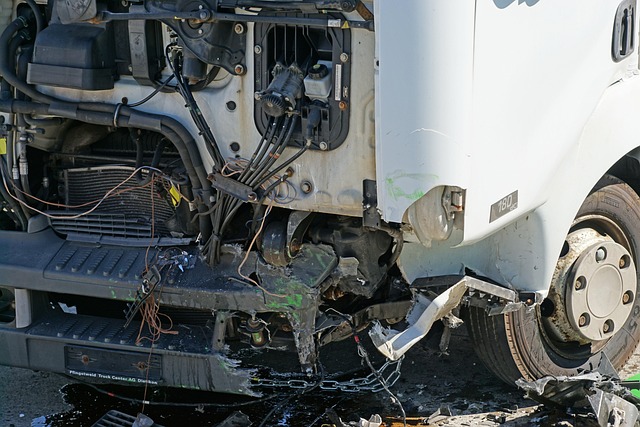General Liability (GL) insurance is a critical shield for businesses, offering financial protection against accidents, injuries, and legal liabilities on their premises. It covers property damage, personal injury, medical expenses, and legal fees, providing peace of mind by addressing common risks. Small businesses rely on local coverage to mitigate day-to-day risks, while comprehensive liability protection offers broader defenses against complex claims, including bodily injury, property damage, professional services liability, and products liability.
Key points:
– Protects against financial losses and legal liabilities from accidents and negligence.
– Covers legal fees, settlement costs, and damages awarded to affected parties.
– Offers tailored coverage for unique business activities and customer bases.
– Includes common risks like property damage and personal injury, plus specialized protections for high-risk industries.
– Exclusions vary; review policies carefully to understand what's covered and excluded.
– Important to evaluate unique business risks, compare providers, and ensure necessary protections are in place.
– Provides stability, peace of mind, and financial security against potential disasters.
– Mitigates significant losses, legal fees, interruptions, and reputational harm from GL claims.
– Stay informed about evolving trends, broader coverage, and emerging risks to adapt policies accordingly.
General Liability insurance is a cornerstone for businesses, protecting against unforeseen claims and lawsuits. This comprehensive guide delves into the intricacies of local and broad-reaching General Liability coverage, equipping small business owners with essential knowledge. We explore why local context matters, what’s covered under comprehensive plans, potential exclusions, choosing the right fit, and real-life scenarios. Understanding these aspects empowers informed decision-making, ensuring robust protection against risks that can significantly impact your business.
Understanding General Liability Insurance: A Basic Overview

General Liability insurance is a crucial coverage for businesses, offering protection against potential claims and lawsuits arising from accidents or injuries on their premises. This type of insurance acts as a shield, safeguarding business owners from significant financial losses and legal liabilities. It covers various scenarios, including property damage, personal injury, and medical expenses incurred due to negligence.
At its core, General Liability aims to provide businesses with peace of mind by addressing common risks. When an insured event occurs, such as a slip-and-fall incident on a business’s property, the insurance company steps in to cover legal fees, settlement costs, and damages awarded to the affected party. Understanding these basic principles is essential for any business owner considering their risk management strategies, ensuring they are adequately prepared for potential liabilities.
Why Local Coverage Matters for Small Businesses

For small businesses, local coverage in their general liability insurance is paramount for several reasons. It ensures they are protected against claims arising from their day-to-day operations within their immediate community. This is crucial as it covers accidents, injuries, or property damage that may occur on premises they own, rent, or frequently occupy. Local coverage is particularly important because it reflects the unique risks and liabilities specific to a certain area, which can vary significantly from one region to another.
Moreover, local general liability insurance provides peace of mind by offering tailored protection aligned with the business’s activities and customer base. For instance, a restaurant in a bustling city center will face different risks than an agricultural farm in a rural setting. Local coverage allows insurers to consider these nuances, ensuring that the policy adequately addresses the specific challenges faced by small businesses operating within their immediate geographic reach.
Comprehensive Liability Protection: What's Included?

Comprehensive liability protection goes beyond standard general liability coverage, offering a broader range of defenses against potential claims and lawsuits. This type of insurance is tailored to businesses facing complex risks, where traditional policies might fall short. It includes not only common coverage areas such as bodily injury and property damage but also expands to protect against various other liabilities. These can include personal and advertising injury, professional services liability, and products liability, ensuring that businesses are shielded from a wide array of legal issues.
For instance, comprehensive liability insurance may cover costs associated with defending against lawsuits, settlement agreements, and medical expenses arising from incidents on your premises or related to your business operations. This protection is especially valuable for companies dealing with hazardous materials, high-risk industries, or unique products, where the potential for claims is heightened. It provides a robust safety net, enabling businesses to focus on growth and success while mitigating legal risks effectively.
Common Risks and Scenarios Covered Under General Liability

General Liability insurance is a crucial safety net for businesses, protecting them against various risks and scenarios that could lead to financial loss or legal liability. Under this broad coverage, common risks such as property damage, personal injury, and medical expenses resulting from accidents on business premises are typically included. For instance, if a customer slips and falls in your store due to a spilled beverage, the General Liability policy may cover the legal costs and compensation for their injuries.
Additionally, this insurance often extends to damages arising from negligence or unintended acts. This could encompass scenarios like a construction site accident involving a passerby, product liability claims related to defective goods, or even more subtle issues like defamation or slander. The scope of General Liability coverage varies among providers, so it’s essential to review the policy details to understand specific exclusions and limitations.
Exclusions to Watch Out For in Your Policy

When considering a General Liability policy, it’s crucial to be aware of potential exclusions that could impact your coverage. These clauses specify what isn’t covered under your policy, and understanding them is essential for knowing your risks. Common exclusions in General Liability plans include those related to intentional acts—if you or your business intentionally cause harm or damage, this type of liability might not be insured. Additionally, certain types of businesses may face exclusions for specific activities, such as illegal acts, war, or natural disasters, which are often excluded from standard policies.
Another exclusion to watch out for is the ‘known risk’ provision. This means if you’re aware of a potential hazard and continue operations without mitigating it, any resulting damage might not be covered. Always review your policy carefully, paying close attention to these exclusions to ensure you have comprehensive protection that aligns with your business activities.
How to Choose the Right General Liability Plan for Your Business

Selecting the optimal General Liability plan is a pivotal decision for any business owner, as it safeguards against unforeseen legal liabilities and financial burdens. The process begins with assessing your business’s unique risk profile. Consider the nature of your operations, products or services offered, and potential hazards involved. For instance, a construction company will have different liability concerns than a food service establishment.
Once identified, evaluate various insurance providers and their policy offerings. Read the fine print carefully, understanding coverage limits, exclusions, and conditions. Ensure the plan includes necessary protections for your specific business needs, such as premises liability, product liability, or professional services liability. Don’t hesitate to seek expert advice or consult industry peers who have successfully navigated this process to make an informed decision for your General Liability coverage.
The Benefits of Having a Strong General Liability Coverage

Having strong general liability coverage is a cornerstone for any business aiming to protect itself from potential risks and financial losses. This type of insurance offers a safety net against claims of bodily injury, property damage, or personal and advertising injuries that may arise within your operations. It’s not just about legal defense; general liability also helps cover medical expenses, settlement costs, and court fees should you be held liable.
Beyond financial protection, comprehensive general liability coverage promotes business stability and peace of mind. It enables you to navigate unexpected incidents, like slip-and-fall accidents or product liability claims, with confidence, knowing that your insurance provider will stand by you throughout the legal process. This, in turn, allows you to focus on running and growing your business, free from the burden of potential financial disasters.
Real-Life Examples of Claims and Their Impact on Businesses

General Liability claims can have significant real-world implications for businesses, shaping their operations and financial stability. For instance, consider a retail store where a customer slips and falls on a wet floor. The customer sues, citing negligence in maintaining a safe environment, leading to a costly settlement and legal fees. This incident could deter potential customers, impacting sales and the business’s overall reputation.
Similarly, a construction company might face a claim for property damage if a project site causes harm to nearby structures during renovation work. Such incidents underscore the importance of comprehensive General Liability coverage, as these claims can lead to substantial financial losses, business interruptions, and legal repercussions.
Staying Informed: Recent Trends and Updates in General Liability

In today’s dynamic business landscape, staying informed about evolving trends in general liability is paramount for companies aiming to mitigate risks and avoid costly legal pitfalls. Recent developments in this area reflect a growing emphasis on broader coverage, increased scrutiny of exclusions, and heightened awareness of emerging risks, such as cyber attacks and mental health-related claims. By keeping abreast of these shifts, businesses can adjust their policies and practices accordingly, ensuring they maintain comprehensive protection against potential liabilities.
The insurance industry is continually refining general liability policies to address new challenges and changing societal norms. This includes expanding coverage for professional negligence, enhancing protections for remote and distributed workforces, and clarifying language related to cyber risks. Business owners are encouraged to review their policies regularly, engage with insurers to understand updates, and consult legal experts to ensure their general liability coverage aligns with evolving legal landscapes and business operations.
